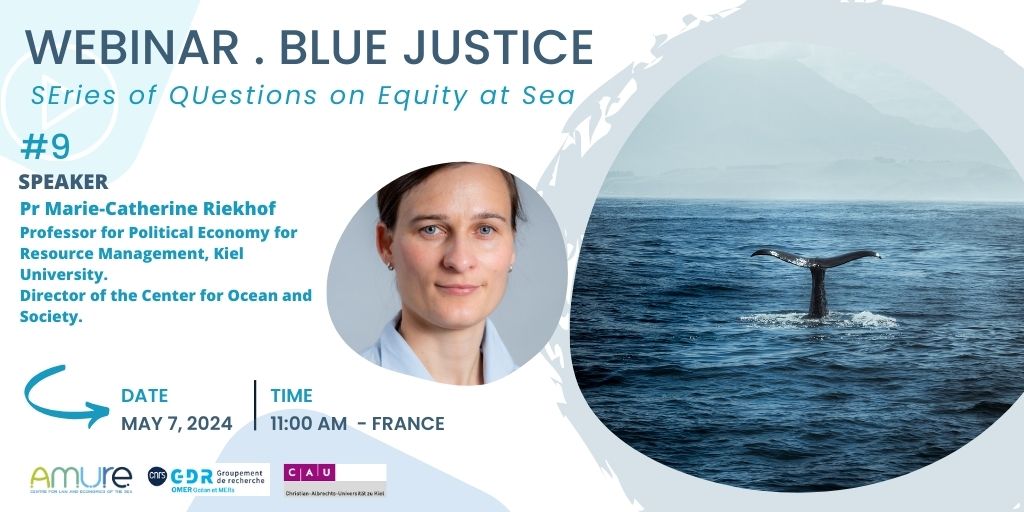SEries of QUestions on Equity at sea
Marie-Catherine Riekhof is Professor for Political Economy for Resource Management with a focus on marine and coastal resources at Kiel University since November 2019. She is also the director of the Center for Ocean and Society.
After studying economics at Kiel University (PhD 2014), she worked at the Center of Economic Research at ETH Zurich (Switzerland) in the “Macroeconomics” working group for several years, where she researched political-economic topics in the field of climate and technology policy. In 2019, she joined the research project marEEshift at the University of Freiburg in the working group “Environmental Economics and Resource Management”. She gained further international experience as a World Bank consultant in India and during research stays in Senegal and the USA. Mutual exchange exists with colleagues from Norway, Peru and Sweden.
Marie-Catherine Riekhof works conceptually and with quantifiable ecological-economic models and conducts empirical studies. She examines the effects of various institutional regulations in the field of natural resources. Problems in the implementation are discussed, for example to take into account the different effects on transaction costs.
Nature’s decline and recovery — Structural change, regulatory costs, and the onset of resource use regulation
Many renewable natural resources have been extracted beyond sustainable levels. While some resource stocks have recovered, others are still over-extracted, causing substantial economic losses. This paper develops a model motivated by empirical facts about resource use and regulation to understand these patterns. The model is a dynamic model of a dual economy with technological progress, structural change, and costly resource regulation. Based on this model, we show that technological progress explains the initial increase in resource use. Technological progress also induces structural change and a decline in resource users. While the declining number of resource users does not directly lead to resource recovery, it does reduce regulatory costs, paving the way for resource regulation and recovery. Our results show that although technological progress can contribute to resource degradation, it also helps resource recovery through reduced regulatory costs. Our results suggest further that a temporal use beyond sustainable levels can be socially optimal until regulatory costs fall below the benefits of regulation. As part of the seminar, we will also discuss justice related questions.
May 7, 2024,
11h AM (France)
Online
Registration
Registration : Google form
Participation is free but registration is required.
The connection link will be sent to you by email.


